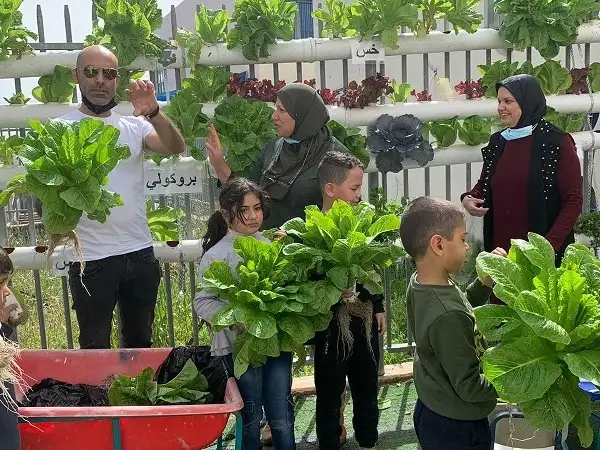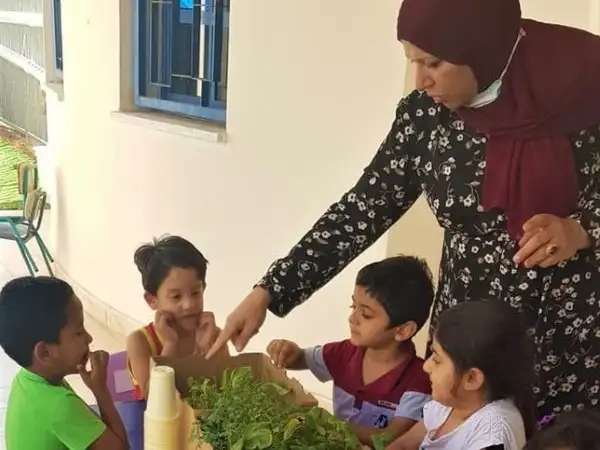

Palestinian kindergarten children and teachers show their vegetables grown using hydroponics.
At a kindergarten in northern Israel, experienced teacher Nijme helps children with language delay to care for our common home.
In the Triangle area of northern Israel, we work with a local organisation, MAAN Workers’ Association, to open pathways for women into paid jobs. The local population – which is overwhelmingly made up of Palestinian citizens of Israel - has very high rates of unemployment and of families living in poverty.


Children learning about planting in their outdoor classroom.
Recently MAAN teamed up with other Israel-based organisations for a pilot scheme helping local women grow vegetables at home, using hydroponics – a system which means crops can be grown in a small space, such as in a back yard or on a flat roof, and using far less water and soil than usual. Nijme was among the first to apply.
Discover our LiveSimply resources for schools
Caring for our common home
Nijme is a highly experienced teacher with a university degree and a string of professional qualifications. She runs a therapeutic kindergarten for children with language delay.
“Kindergarten work is non-stop fun,” she says, “because you see the effect of your work right away. The children start from a blank page, and as they grow up they fit in well and even excel compared to other children. This is how I change their destiny and give them a future.”
Kindergarten work is non-stop fun because you see the effect of your work right away
In her teaching, Nijme encourages the children to explore practical and sustainable ecology. This helps them to learn about science and gain an appreciation for the importance of caring for our common home.“
At the end of September 2020 we finally installed the hydrophonic systems and the beauty is we built them with our own hands,” says Nijme. Now the children learn more and more each day about how the plants grow.“
We write down the names of all the types of vegetables we plant, and the kids have learned how to measure the acidity and salinity level,” Nijme explains. “I am sure that this experience will remain vivid with the children for a lifetime, and they will stay connected to plants and nature even as they grow up."
The children pick lettuce and vegetable leaves every day and eat them during their meal break in the garden, and sometimes I allow them to take home the harvested crop. There is no bigger magic than taking a broccoli or lettuce home.”
There is no bigger magic than taking a broccoli home
"You have never seen such joyful faces"
But the success of Nijme’s project goes even further! She and the other women involved with the scheme have formed a growers’ group. They keep in touch using WhatsApp, swapping tips and advice, and they’re arranging to sell their produce cooperatively. Nijme has already found a restaurant manager who is interested in regularly buying produce grown by the group.
“The first time I took the harvest to the restaurant some kids and parents joined me,” she says. “You have never seen such joyful faces."

